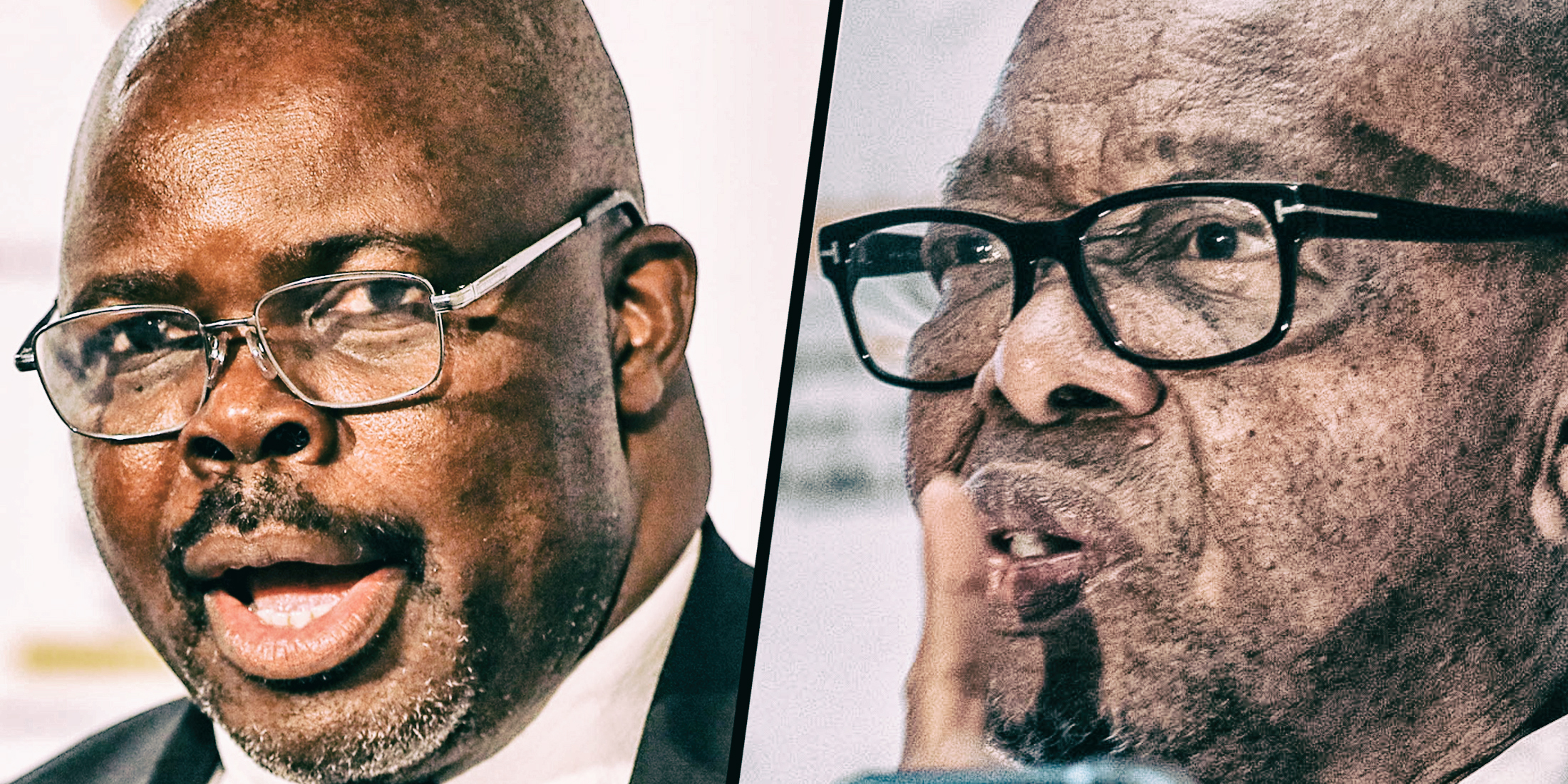Higher Education and Training Minister Blade Nzimande dissolved the board of the National Student Financial Aid Scheme (NSFAS) and placed it under administration on Thursday, as many beneficiaries continue to face non-payment issues.
At a meeting on Thursday, he informed the board that it had been dissolved with immediate effect. The decision will be published in the Government Gazette on Friday.
NSFAS chairperson Ernest Khosa resigned on Thursday before Nzimande announced his decision to dissolve the board. Khosa was allegedly linked to irregular tenders NSFAS issued to four service providers to manage payments to NSFAS beneficiaries.
Read more in Daily Maverick: How NSFAS tapes knocked Blade Nzimande against the ropes
Nzimande’s spokesperson, Veli Mbele, told eNCA on Thursday evening, “This was a decision that the minister took to dissolve the board, one, and, secondly, place the institution under administration.
“The minister further indicated through the statement that he will then take the nation into [his] confidence on the rationale for this decision and what this decision means henceforth and this will be communicated in a media briefing and it is important to understand that the minister is the shareholder and the board accounts to the minister.
“So, typically the minister would enter into a shareholders’ compact … He is obliged to assess the performance of any board and take whatever action he deems necessary,” Mbele said.
Mbele said Khoza had resigned willingly and had not been pushed out.
“This is one part of NSFAS and will not have a material impact on the running of NSFAS,” Mbele said.
“It’s not going to have a material or detrimental effect on the payment of allowances. Remember, we have already paid for this month, which is April, and will pay in the next cycle. We don’t anticipate a negative effect on the responsibilities, especially financial support to students.”
Recurring problem
In a statement before announcing the dissolution of the board, Nzimande said he was “aware of, and deeply disturbed by the recurring problem of non-payment of student allowances” by NSFAS.
He announced several “decisive steps” to address NSFAS’s failure to pay students, including establishing a task team, which has already begun working and will visit TVET colleges and universities where students are experiencing problems.
Nzimande said NSFAS had paid more than R511-million to students in the latest payment cycle, but “not all TVET colleges and universities have complied with the NSFAS deadline of 15 March 2024 for the submission of student registration data to facilitate the payment of allowances. The failure to comply by some TVET colleges and universities has contributed to the latest sporadic student protests.”
The minister said the director-general of the Department of Higher Education had been dispatched to meet urgently with NSFAS management “and it was intended to ensure that working with institutions, all outstanding allowances are paid as soon as it is practicable".
“In addition, NSFAS has sent its servicing administrators to work with the non-compliant TVET colleges and universities to finalise the submission of student registration data and ensure that the outstanding student allowances and tuition are paid in the next payment cycle.”
Nzimande under pressure
DA shadow minister of higher education Chantel King called on Nzimande to resign over the crisis at NSFAS.
“Once again, the non-payment of student allowances has left many students hungry, without funds for food, and even facing the real risk of being put out on the streets.
“This dire situation underscores the urgent need for action to address the systemic failures within NSFAS and the Department of Higher Education — something the DA has been calling for since it became clear that the system was riddled with problems,” she said.
“In light of the resignation of Mr Khosa and the dissolving of the NSFAS board, the DA calls on Minister Nzimande to follow suit and resign with immediate effect. Minister Nzimande cannot be absolved from actions of the board since he has defended the decisions of the board on numerous occasions.”
The South African Students Congress (Sasco) said, “This landmark decision marks a significant victory for the general student population within the public education sector who rely on NSFAS funding to pursue their academic aspirations.”
Sasco said further changes were needed at NSFAS. Despite reports that NSFAS planned to terminate its contracts with the service providers appointed to disburse payments to beneficiaries, student groups said the controversial companies were still responsible for paying their allowances.
“We reiterate our call for the termination of contracts with FinTech companies responsible for administering student allowances. These contracts have been a source of frustration for students and have hindered the efficient disbursement of funds.
“Furthermore, we emphasise the urgent need for structural transformation at an administrative level within NSFAS. The current system is plagued by inefficiencies and bureaucratic hurdles that impede students’ access to financial assistance,” Sasco said.
In a statement on Thursday, the EFF Students' Command (EFFSC) said it “noted with great concern” that NSFAS was still using “corrupt and incompetent third-party service providers to distribute student allowances”.
Read more in Daily Maverick: Time for a ‘revolutionary visit’ — SA Students Congress sounds warning of protests over NSFAS chaos
The EFFSC questioned why the four service providers were still distributing NSFAS funds to beneficiaries despite findings that aspects of their contracts were irregular.
“Students across all campuses in South Africa have also fallen victim to the gross negligence and inefficiencies of the four direct payment service providers. Whilst others have had to go to class and sleep on empty stomachs because they have not received their allowances at all, others receive amounts which are less than what is due to them according to the NSFAS funding guidelines,” the EFFSC said. DM





